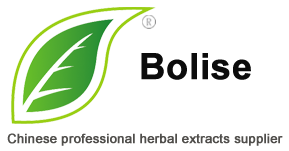椰子油
Coconut oil is extracted from the kernel or meat of matured coconut harvested from the coconut palm (Cocos nucifera).椰子油是從可可椰子(Cocos nucifera)收穫的成熟椰子的仁或肉中提取的。 Throughout the tropical world it has provided the primary source of fat in the diets of millions of people for generations.在整個熱帶世界中,它世代相傳已為數百萬人的飲食提供了主要的脂肪來源。
Coconut oil is uniquely different from most other dietary oils and for this reason, has found use in a multitude of applications in food, medicine, and industry.椰子油與大多數其他食用油有獨特的區別,因此,椰子油已在食品,醫藥和工業中得到廣泛應用。 What makes coconut oil different from most other dietary oils is the basic building blocks or fatty acids making up the oil.使椰子油與大多數其他食用油不同的是構成該油的基本組成部分或脂肪酸。 Coconut oil is composed predominately of a special group of fat molecules known as medium chain fatty acids (MCFA).椰子油主要由一組特殊的脂肪分子組成,稱為中鏈脂肪酸(MCFA)。 The majority of fats in the human diet are composed almost entirely of long chain fatty acids (LCFA).人類飲食中的大多數脂肪幾乎完全由長鏈脂肪酸(LCFA)組成。
MCFA和LCFA之間的主要區別是分子的大小,或更準確地說,是構成脂肪酸主鏈的碳鏈的長度。 MCFA的鍊長為6至12個碳。 LCFA包含14個或更多的碳。
The length of the carbon chain influences many of the oil's physical and chemical properties.碳鏈的長度會影響石油的許多物理和化學特性。 When consumed, the body processes and metabolizes each fatty acid differently depending on the size of the carbon chain.消耗時,人體根據碳鏈的大小不同地加工和代謝每種脂肪酸。 Therefore, the physiological effects of the MCFA in coconut are significantly different from those of the LCFA that are more commonly found in the diet.因此,MCFA在椰子中的生理作用與飲食中更常見的LCFA的生理作用顯著不同。
MCFA和LCFA也可以分為飽和,單不飽和或多不飽和脂肪酸。 Coconut oil contains 92% saturated fatty acids.椰子油含有XNUMX%的飽和脂肪酸。 All of the MCFA in coconut oil are saturated.椰子油中的所有MCFA都飽和。 They, however, are very much different chemically from the long chain saturated fatty acids found in animal fat and other vegetable oils.但是,它們在化學上與動物脂肪和其他植物油中的長鏈飽和脂肪酸有很大不同。

 亞洲生物醫學研究院
亞洲生物醫學研究院 博利斯有限公司
博利斯有限公司

